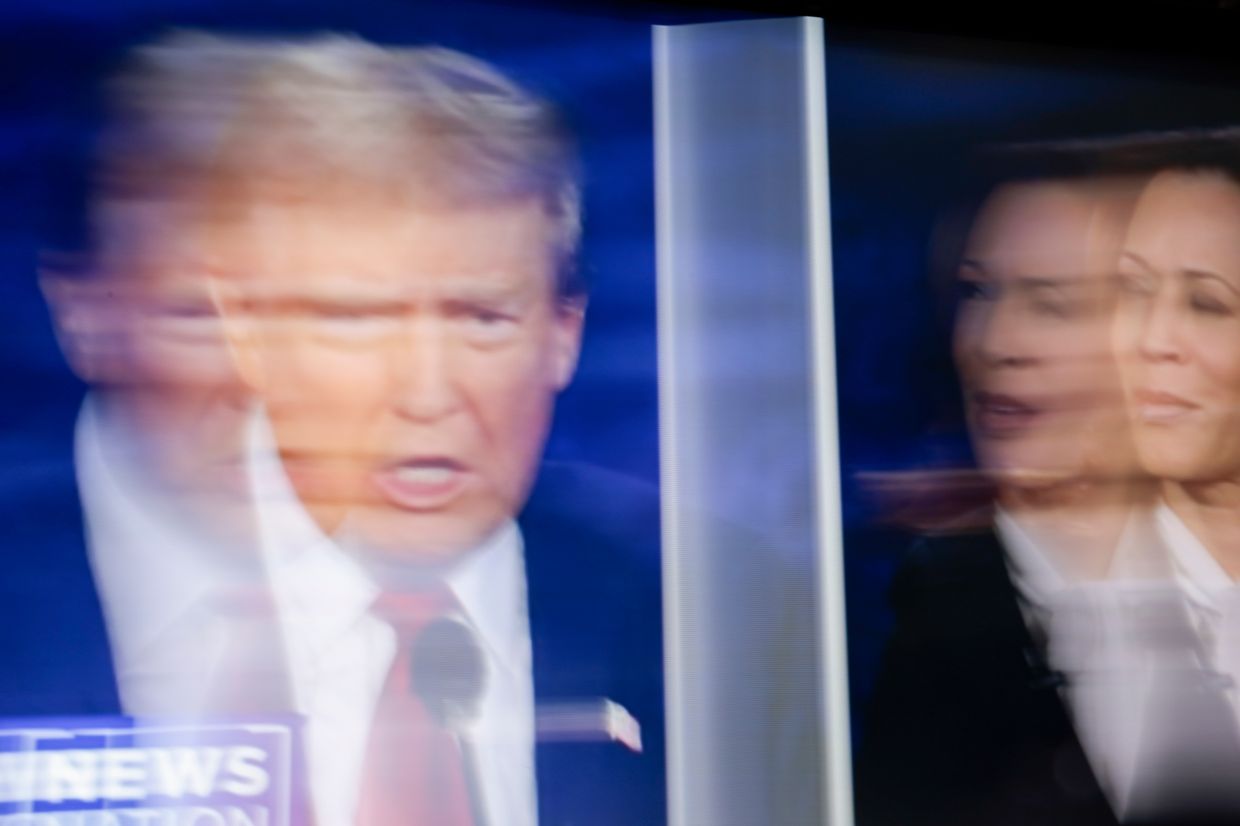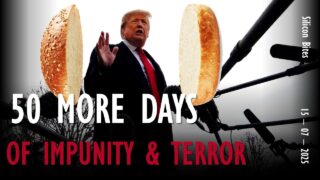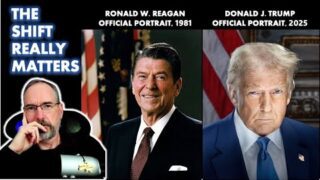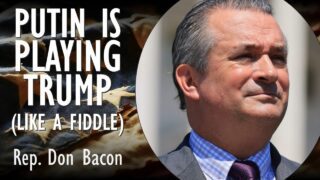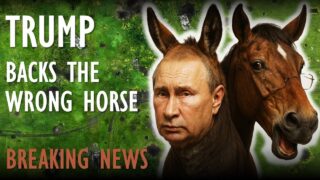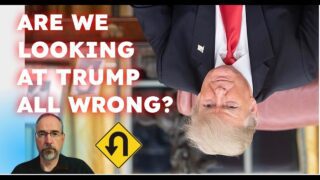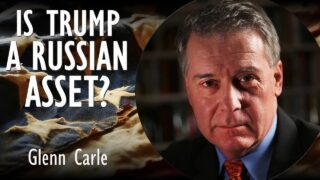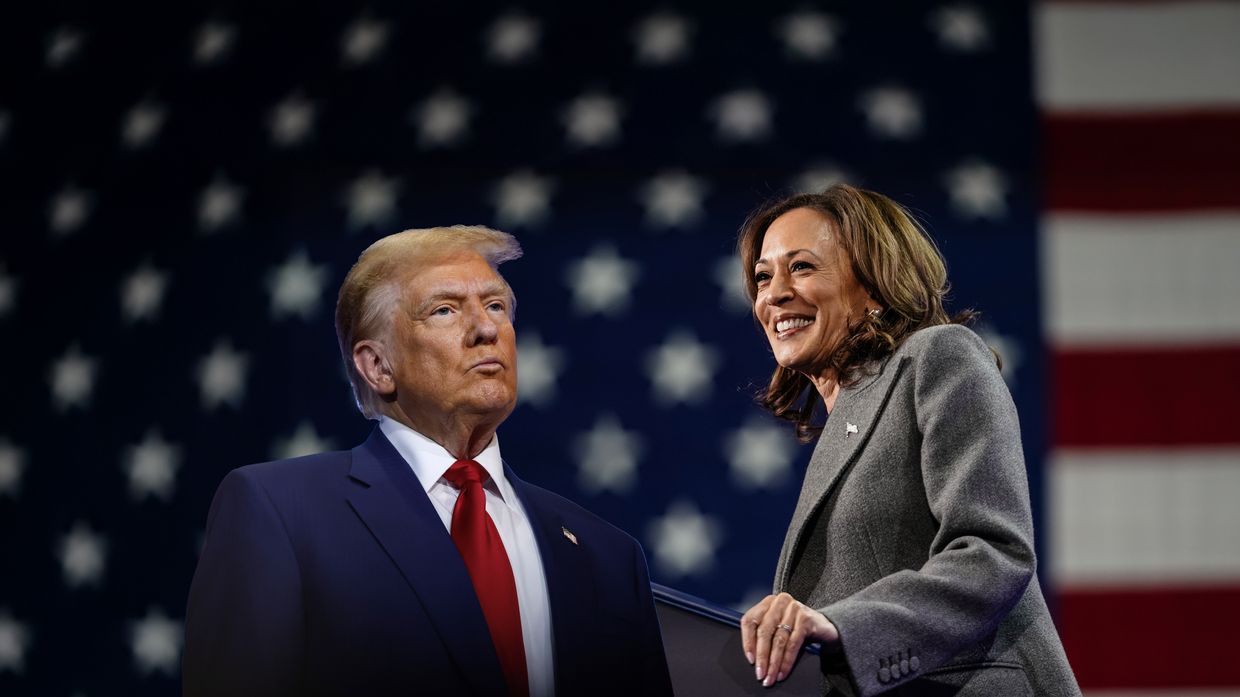
Harris or Trump — Ukraine braces for best, worst-case scenarios as US elects new president
As Americans head to the polls on Nov. 5, Ukraine is nervously watching the elections being held by its top Western ally as the outcome could determine the country’s fate in its fight against Russia’s almost three-year-old full-scale invasion.
The two candidates' pre-election positions on continuing to support Ukraine with weaponry are in such stark contrast that some experts estimate whoever emerges victorious will impact whether Kyiv stays in the fight or is choked of supplies to the point of capitulation.
Vice President Kamala Harris, 60, the Democratic nominee, says she will stand by Kyiv until “Ukraine prevails in this war,” and that if her opponent were in the White House, Russian President Vladimir Putin would be sitting in the Ukrainian capital.
The Republican nominee, former president Donald Trump, 78, recently blamed Ukrainian President Volodymyr Zelensky for the war starting and has repeatedly said without detail that he will have the war settled on or before inauguration day if he wins.
As Russia continues to make gains on the battlefield, Ukrainian officials are reportedly growing more despondent about the future course of the war, with fears the election outcome could leave them fighting Moscow with little or no help from the U.S. or forced into a peace deal on unfavorable terms for Kyiv.
‘Best-case scenario’ for Ukraine
Evelyn Farkas, executive director at the McCain Institute, a U.S.-based think tank named in honor of the late Republican senator John McCain, said the best-case election scenario for Ukraine is a full sweep by Harris and her Democratic party, taking the White House and both chambers of Congress.
Under that scenario, “the U.S. is able to provide reliable assistance to Ukraine in a more than timely fashion … it pays sufficient attention to Ukraine, not just with financial resources and weaponry, but it really figures out how it can help Ukraine achieve victory,” Farkas told the Kyiv Independent.
Both the Senate and House are up for grabs in the election, the outcomes of which will determine how much any sitting president is able to accomplish.
Whether Harris is ready to go all-in for Ukraine remains to be seen. But if her campaign statements of support for Kyiv’s fight against Moscow are any indication, she is likely to continue a policy of diplomatic and military support for the war-torn country.
U.S. Senator Mark Kelly and Congressman from New York Gregory Meeks, the highest-ranking Democrat on the House Foreign Affairs Committee, both told the Kyiv Independent they expect Harris’s approach to Ukraine to be similar, although not identical, to Presiden Joe Biden’s.
The Biden-Harris administration has put the defense of Ukraine on the same level as avoiding World War III, which has been defined by the fear of escalation with Russia, Ivo Daalder, a former U.S. ambassador to NATO, told the Kyiv Independent.
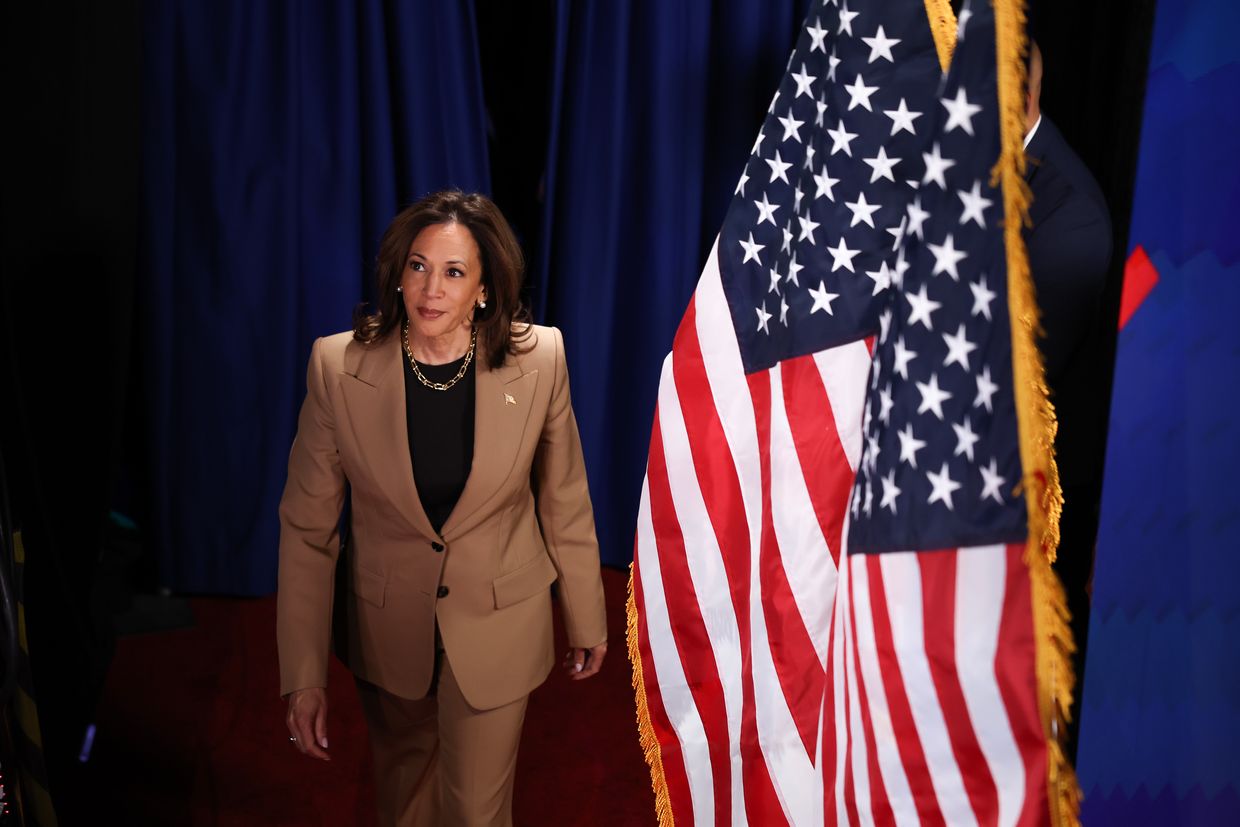
The Kremlin has repeatedly rattled the nuclear saber since the start of its full-scale invasion as a way of deterring support for Ukraine. The fear of Russia’s reaction is largely believed to be behind Washington’s delays in delivering certain weapons like HIMARS and F-16 fighter jets.
Who Harris picks for her secretary of state — the country’s top diplomat — and as national security advisor will undoubtedly shape her policies toward Russian aggression in Ukraine and across Europe. The Harris campaign has not made any of its potential cabinet picks public pre-election.
In the running for secretary of state are reportedly CIA Director William Burns, Senators Chris Murphy from Connecticut and Chris Coons from Delaware, both Democrats, and former Republican Senator Jeff Flake from Arizona; Linda Thomas-Greenfield, the current U.S. ambassador to the UN; Samantha Power, current head of the U.S. Agency for International Development; and Pete Buttigieg, the current U.S. transportation secretary, Politico and NBC News reported.
All of the potential picks for state secretary would likely back a continued policy of high support for Kyiv. Secretaries of state often look to cement their legacy with bold foreign policy decisions. But as many of the candidates already work for Biden, they may well stay the policy course with the war in Ukraine.
All of the potential picks for state secretary would likely back a continued policy of high levels of support for Kyiv.
The cautious approach from the current White House has largely been blamed on Biden and Jake Sullivan, his national security advisor.
Should Harris win, her policy toward Ukraine could be heavily influenced by Sullivan’s replacement. The vice president’s current national security advisor, Phil Gordon, is widely rumored to be her top pick to take on the role.
Daalder believes that a Harris-Gordon team on the foreign policy front could be an opportunity for change.
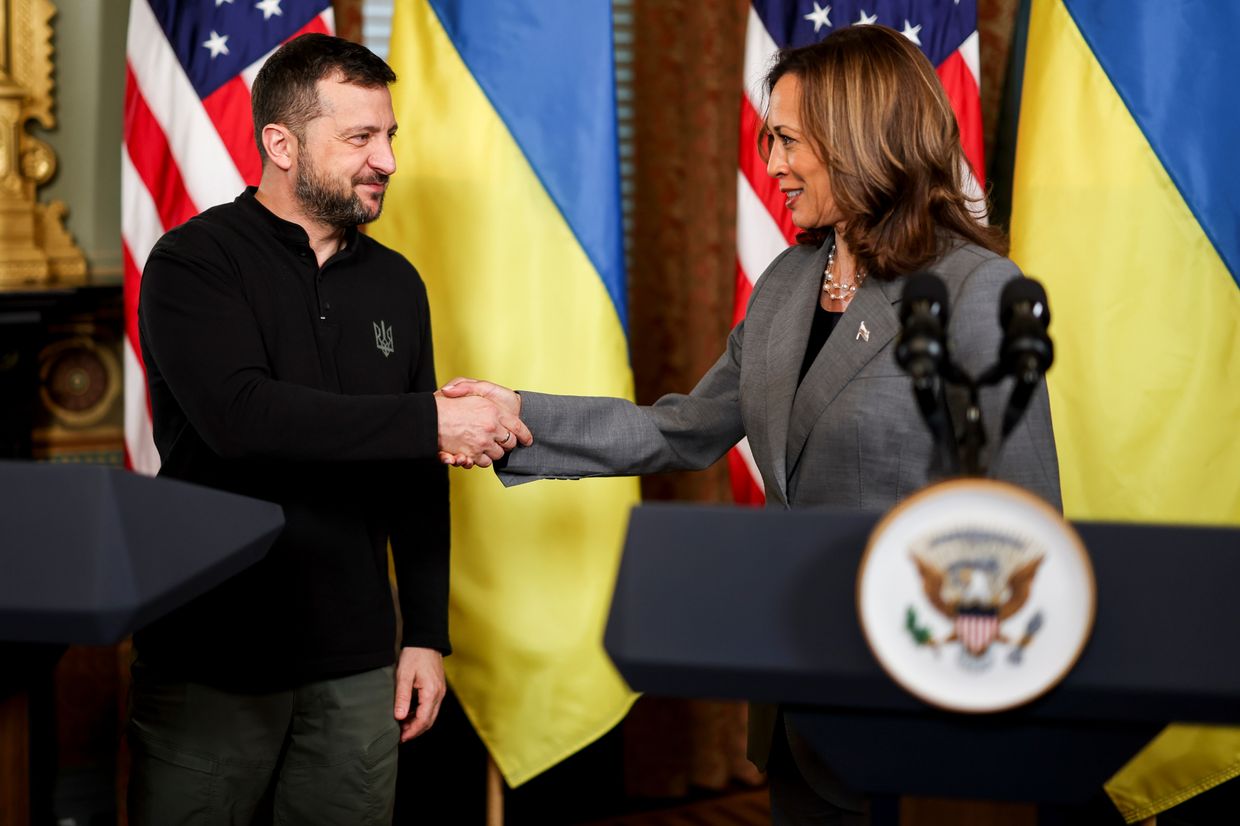
“To the extent that Gordon and Harris are not as fully bought into the (fear of escalation) perspective as Biden was, there's a better opportunity for change under Harris and Gordon than there would be under a continuation of Biden,” said Daalder, who has known and worked with Gordon for decades. He added that the two are less likely to be as opposed to kickstarting NATO membership for Ukraine than Biden has been.
“From the F-16s to not providing ATACAMs, HIMARS, to not being able to strike deep inside Russia with the Storm Shadow, that's all Biden. There's no one else in the administration who is as tied to that,” he said.
Still, in October, Harris dodged a question on Ukraine’s NATO membership, saying Washington will address that “if and when it arrives at that point.”
Regarding a potential Harris presidency with Gordon as national security advisor, Michael McFaul, former U.S. Ambassador to Russia, said he believes the pair would be a net positive for Ukraine overall.
“(Gordon) knows Europe well. (Harris) on the campaign trail talks about her seven meetings with Zelensky all the time. Those, I think, are good signs,” Michael McFaul, currently a professor of international studies at Stanford University and the co-founder of the Yermak-McFaul Expert Group on Russian Sanctions, told the Kyiv Independent in an interview published on Nov. 3. The expert group is led by Andriy Yermak, Zelensky’s chief of staff.
“I think the transition to a new Harris administration might be more like other transitions where you get new people with new ideas — I hope that those people will be ones that understand the importance of defeating Putin's army in Ukraine,” McFaul said.
Introducing official
merch from the Kyiv Independent
const eshopBannerv4Btn = document.getElementById(“snippet__officialMerchV2_button”);
eshopBannerv4Btn.addEventListener(“click”, () => {
window.dataLayer?.push({
event: `InternalLinkClick`,
element_category: “Banner e-shop”,
element_name: “Voloshyn article snippet”,
target_url: “https://store.kyivindependent.com/”,
target_text: “Shop now”,
});
window.open(“https://store.kyivindependent.com/”, “_blank”);
});
U.S. support for Ukraine in its now almost three-year fight against relentless Russian grinding assaults depends on whether Ukraine retains the will to fight, said Reno Domenico, head of Democrats Abroad in Ukraine.
“The U.S. is not going to support Ukraine if Ukraine doesn’t want to fight,” he told the Kyiv Independent.
Trump — A ‘worst-case scenario’ for Ukraine?
Even if Ukraine retains the will to fight, fears abound that a potential Trump presidency could spell the end of the war on unfavorable terms for Kyiv.
In addition to deriding aid to Ukraine and blaming Zelensky for the invasion, Trump has repeatedly said he would bring a swift end to the war — even saying he could do so in 24 hours, without providing any details or plans.
What worries Kyiv and its allies around the world is that any quick resolution to the war would invariably involve massive concessions to Putin, including the ceding of some 20% of occupied territory to Russia and the abandonment of Ukraine’s aspirations to join the NATO military alliance.
After the former president met with Zelensky in New York this September — their first in five years — the Republican nominee said there would be a rapid deal to end the war if he won the election but that it was “too early” to say how he would do that.
Of concern in Ukraine and beyond is also Trump’s repeated claims that he has a good relationship with Putin and the close contact the two maintain.
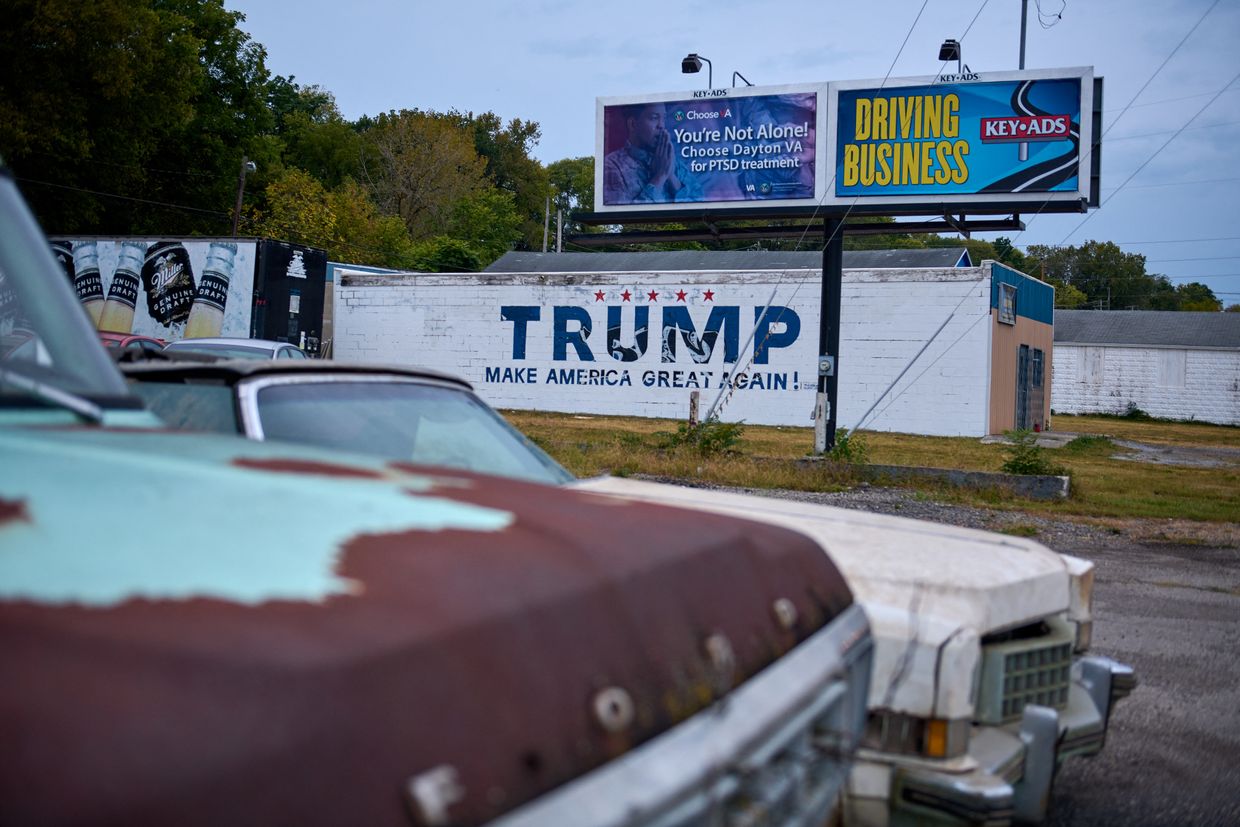

“We know what Trump is going to do,” Domenico said. “He has stayed in constant communication with Putin, his friend.”
Trump has reportedly spoken with Putin as many as seven times since leaving the White House, according to renowned journalist Bob Woodward’s latest book.
Billionaire Elon Musk, who’s been campaigning vigorously for Trump and whose satellite company Starlink has aided Ukraine’s Armed Forces, has also reportedly been communicating with Putin and other Kremlin officials since late 2022, according to the Wall Street Journal.
On the contrary, Harris said she refuses to meet with Putin for peace talks unless Ukraine is present at the table.
Trump has sought to present his friendly relations with Putin as an advantage in negotiating with him to bring an end to the war in Ukraine. But McFaul, the former ambassador to Russia, warns that giving Putin what he wants as part of any potential peace deal would only make him want more.
“Trump coming to power and signaling that he's going to reduce or eliminate assistance to Ukraine, that's going to embolden Putin. He's going to think my enemy is now weaker. That this is a time to go for more, not less,” McFaul told the Kyiv Independent.
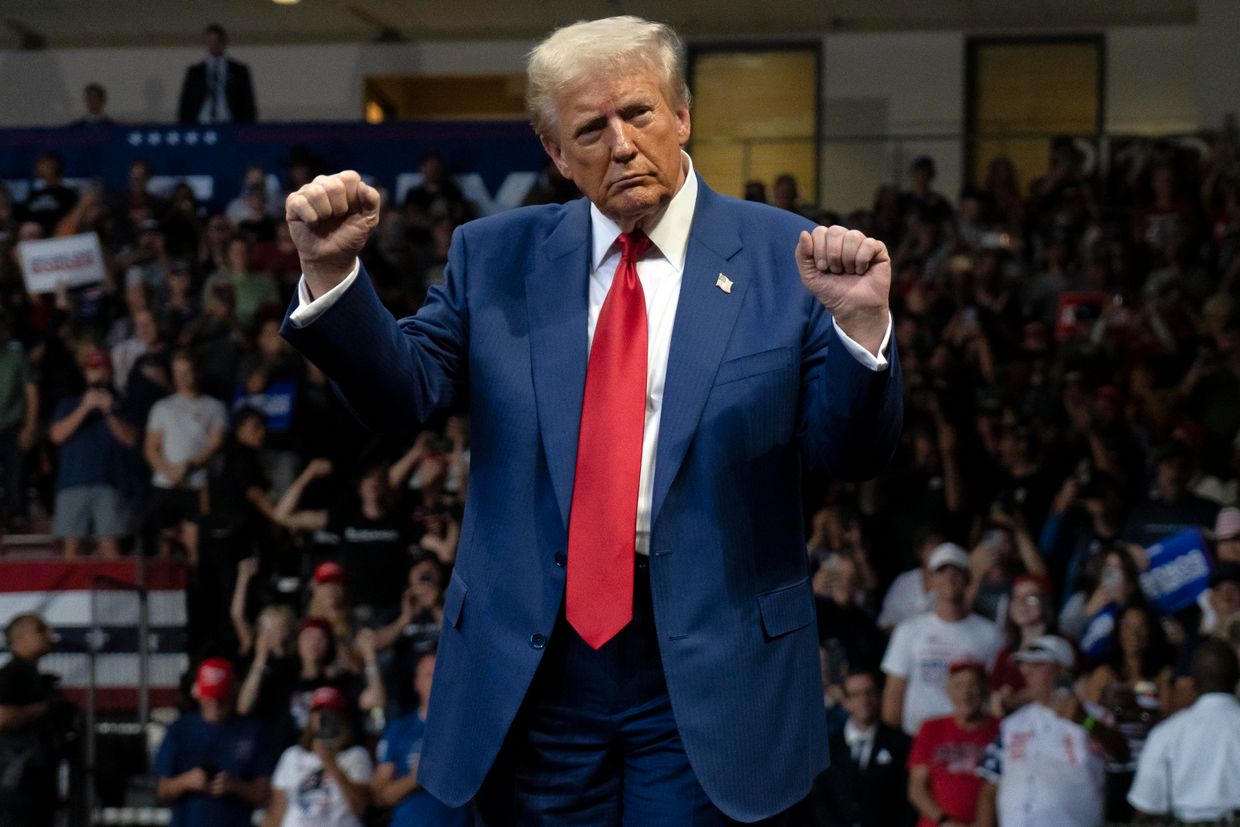

“I just fear that Trump fundamentally doesn't care about Ukraine. He still fundamentally does care about his personal relationship with Putin; he's been very consistent in his support for Putin,” McFaul said.
Trump’s response to Russian aggression, as well as the other global risks present in the world, namely North Korea and Iran, depends on his team, Farkas, of the McCain Institute, said.
"I just fear that Trump fundamentally doesn't care about Ukraine. "
A team made up of Trump’s former National Security Advisor Robert O’Brien or former State Secretary Mike Pompeo would understand the threats facing the U.S. and its allies around the world, according to Farkas.
In addition to O’Brien, the list of candidates for possible state secretary under Trump reportedly includes Richard Grenell, former acting Director of National Intelligence and ambassador to Germany in Trump’s first administration; Bill Hagerty, Republican senator from Tennessee; Marco Rubio, Republican senator from Florida, and Mike Waltz, congressman from Florida.
Another factor contributing to concerns that Ukraine could be left on its own to fight a much larger enemy is Trump’s cozy relationship with Hungary’s Prime Minister Viktor Orban, who is also friendly with Putin and openly against aid to Ukraine. Trump’s possible return to the White House is only expected to further embolden Orban.
The two have met on multiple occasions, including once in July in Florida at Trump’s Palm Beach Mar-a-Lago residence almost immediately after the Hungarian leader met Putin.
Following the meeting, Orban endorsed Trump’s candidacy in the election, and in a tweet called the visit his “peace mission 5.0,” writing: "We discussed ways to make #peace. The good news of the day: he’s going to solve it!” referring to the war in Ukraine.
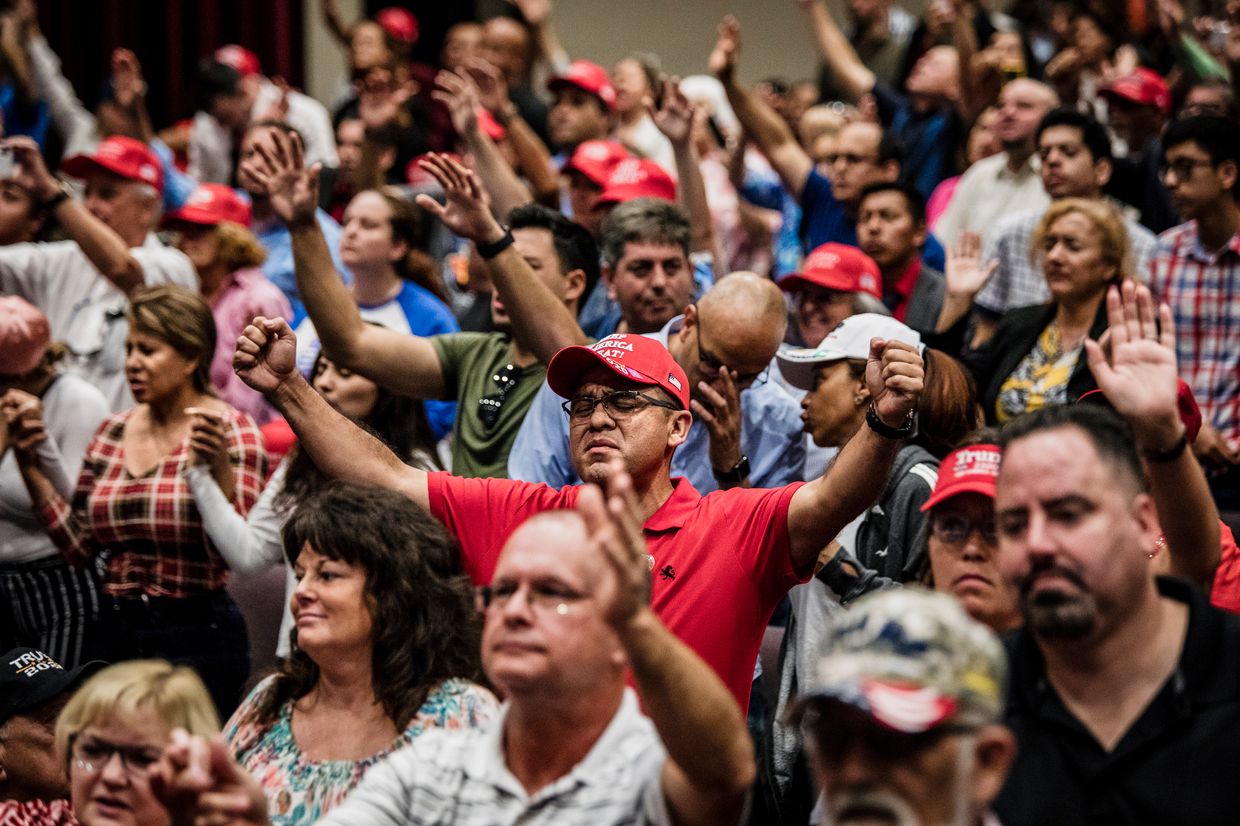

During his first term in office, Trump took a hammer to the U.S.’s transatlantic relations and threatened to pull the U.S. out of NATO. Largely in response, the U.S. Congress approved legislation in 2023 that would make it impossible for any president to withdraw the U.S. from NATO without approval from the Senate or an Act of Congress.
One of the lawmakers to spearhead the move was Senator Rubio, one of Trump’s potential picks to head the State Department.
However, Trump’s former national security advisor John Bolton, who has distanced himself from his former boss, said on Nov. 3 that U.S. withdrawal from NATO under a second Trump administration is a “real possibility.”
“It would be a catastrophic mistake for the U.S. to withdraw from NATO, but it's a real possibility in a second Trump Administration. It would be a terrible blow to American and broader Western interests worldwide,” Bolton tweeted.
If Trump wins back the White House, it is expected that Ukraine will further realize the extent of its dependence on America, and as a result, Europe will increasingly be on the receiving end of requests for aid.
Congressman Meeks says that should Trump win, it’s critical for Ukraine that Democrats retain control of the House. Even if Harris wins, she’ll likely struggle to get Ukraine aid through Congress, which is currently split with Democrats in control of the Senate and Republicans atop the House.
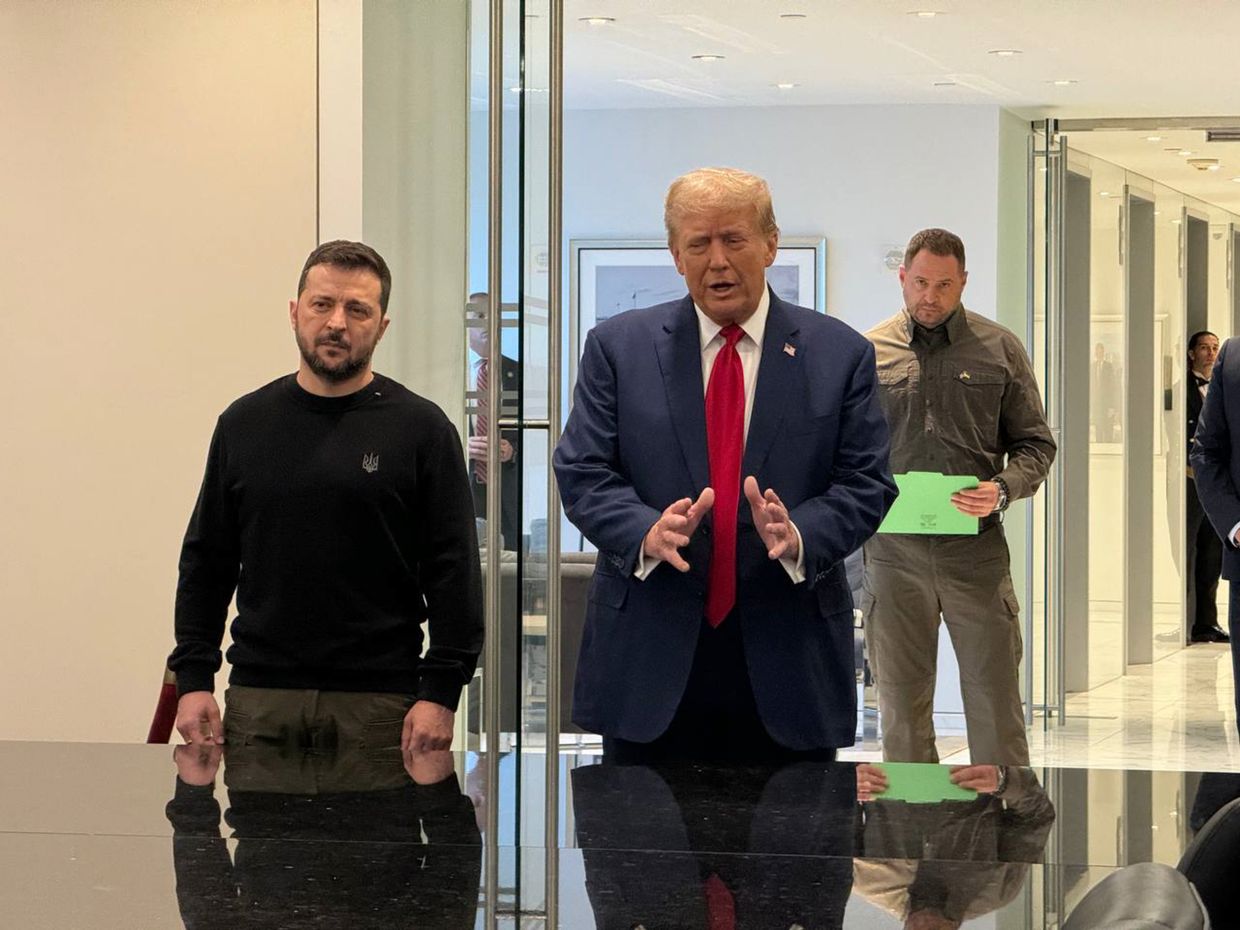

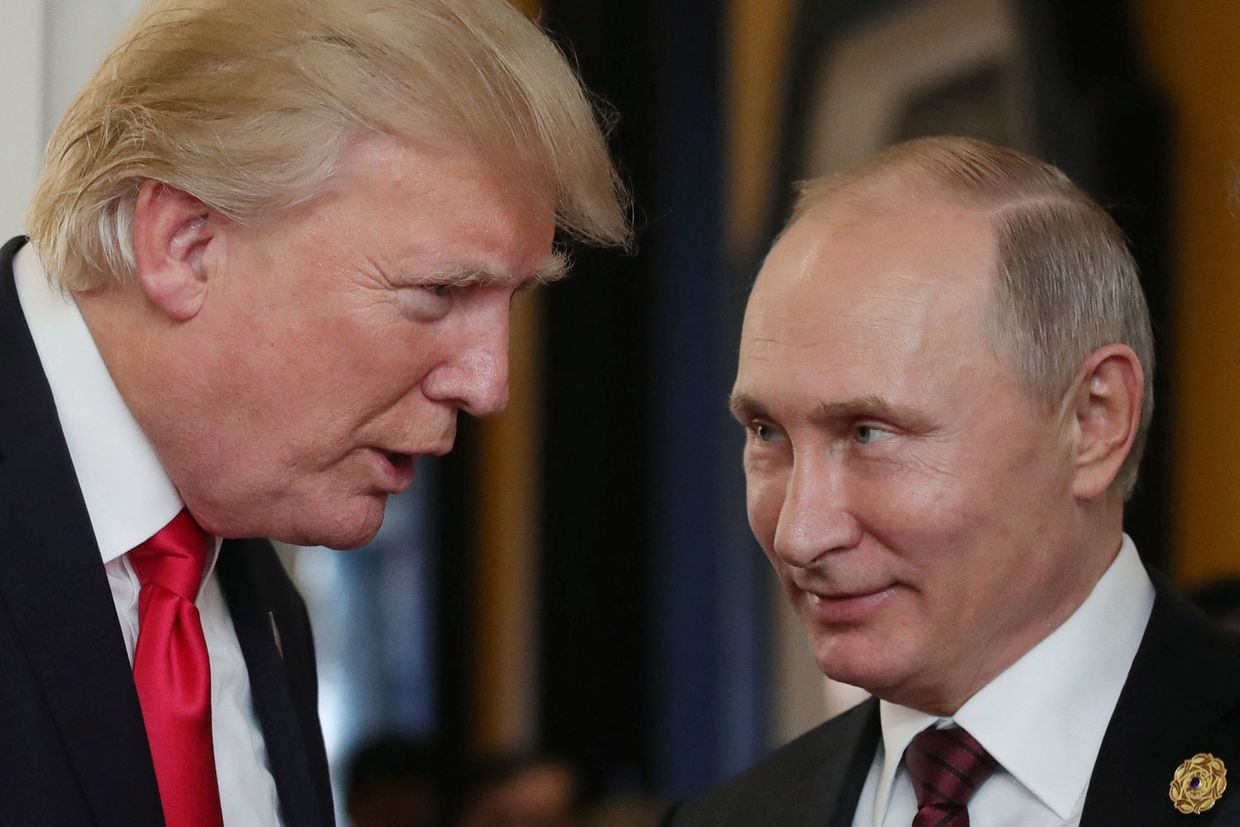

“(It is) critical that Democrats win back control of the House — which has the power of the purse — so we can deliver critical support to Ukraine without the delays and obstructions caused by extremist MAGA Republicans,” Congressman Meeks said in a statement to the Kyiv Independent.
There are others who have sought to assuage fears of Trump’s possible return to the White House and what that could mean for Ukraine.
Boris Johnson, the former British Prime Minister who’s been one of Kyiv’s loudest advocates, remains hopeful that a Trump presidency wouldn’t spell the end of American support for Ukraine.
“I hear what people say, I am very concerned, but I believe on the basis of what Trump has done in the past, that he will be robust,” Johnson, who discussed Ukraine with Trump in July, said in an interview with CNN. He referenced the Javelin missiles Trump approved for Ukraine in 2017.
“For this instinctive reason I cannot believe that a guy who is so passionate about his country, about making America great again will want to kick off his next presidential term by basically allowing the Soviet empire to be great again, I can’t believe that he will allow that to happen.”
